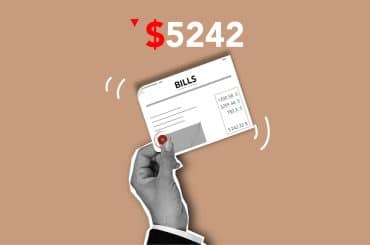This blog post may contain references to products or services from one or more of our advertisers or partners. We may receive compensation when you click on links to those products or services.
Debt is a huge issue for many people. Managing that debt is often a challenge, leading many people to wonder if they need professional debt assistance and when they should seek out these services. For those who have a handle on managing their debt, this might not be necessary. Debt relief companies are designed to help consumers get resolution with their creditors and get their financial life back on track. They can assist with negotiating payments, eliminating fees, and other elements of repayment to help you create a plan that works. You can ask experts like TurboDebt for more information.
How Are You Managing Your Debt?
Everyone handles money and debt differently. If you have an effective plan in place to pay down your debt and get back on track, you might not need the assistance of a professional service. However, the majority of people feel overwhelmed by creating a plan for themselves, or they simply don’t know where to start and what to tackle first. If you are facing the following issues, it might be a sign that you need to ask for help.
- If you are only making minimum payments, it might be time to come up with a better plan. This is just going to prolong the debt and keep you financially bound to your creditors for longer than may be necessary.
- If you are paying bills with credit cards out of necessity, your finances may be in serious trouble. It can be hard living paycheck-to-paycheck, but it is important to get your budget back on track and find ways to improve your financial future. A professional can help with debt management as well as money management skills for the future.
- If you have no savings in place to help pay down your debt or cover emergency expenses, it can be hard to manage your debt. It sounds strange that you should be saving at the same time you are trying to pay down debt, but you need an emergency fund.
- How is your budget? If you don’t have one, you need professional assistance. If you have one, but can’t stick to it regularly, you also could benefit from debt management and relief services. Part of your success in debt repayment and managing money depends on having (and sticking to) a budget.
What About Bankruptcy?
Bankruptcy is a legal process that is designed to help eradicate all debt and give people a chance to start fresh. When the bills and debt have become too much, some people might feel like this is the only option. While it is an effective solution for handling debt in severe cases, bankruptcy should always be a last resort. This is an irreversible process and once you have declared and filed for bankruptcy, it is going to remain on your credit reports for up to 7 years. There may be other ways to pay off your debts that are less damaging to your credit report.
The Bottom Line
There is no right or wrong time to ask for help with your debt situation. Make sure that you take the time to explore your options and decide what is best for you. You should also consider what type of debt assistance you need because there is more than one option. Finally, don’t be embarrassed to ask for help. A lot of people are, but the first step to getting your finances back on track is facing the problem, and professionals are only here to help.
Become an Insider
Editorial Disclaimer: The editorial content on this page is not provided by any of the companies mentioned and has not been endorsed by any of these entities. Opinions expressed here are author's alone
The content of this website is for informational purposes only and does not represent investment advice, or an offer or solicitation to buy or sell any security, investment, or product. Investors are encouraged to do their own due diligence, and, if necessary, consult professional advising before making any investment decisions. Investing involves a high degree of risk, and financial losses may occur.




















